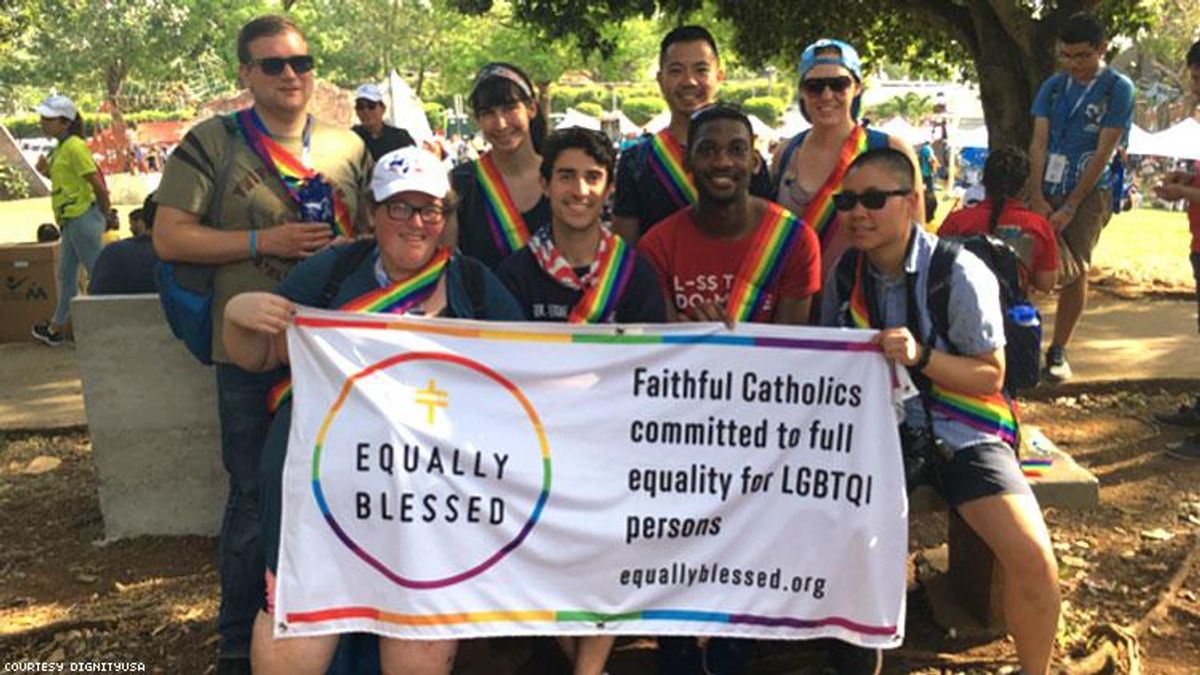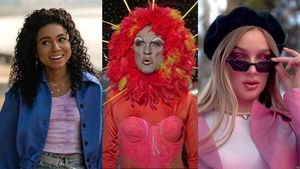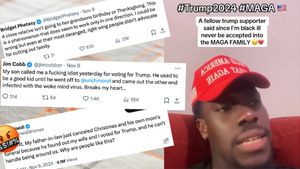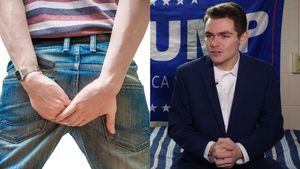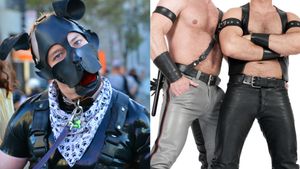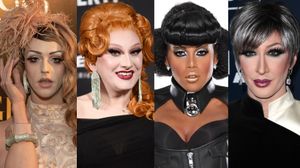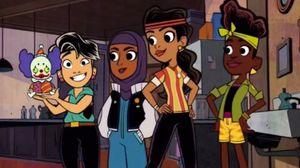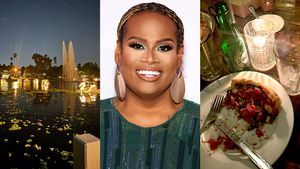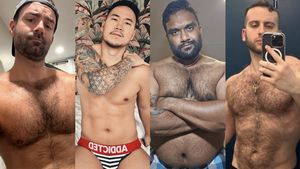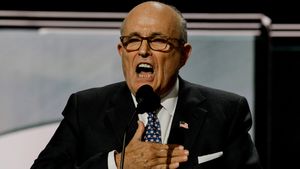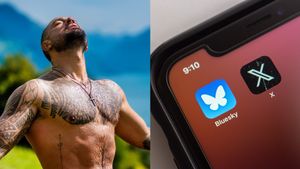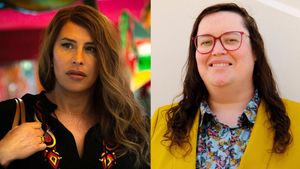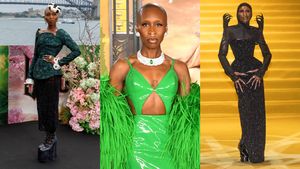In late January, we walked around Panama City streets jammed with young Catholics while wearing rainbow sashes and buttons, and carrying a sign that read "Faithful Catholics committed to full equality for LGBTQI persons."
We were a delegation from Equally Blessed, a coalition of three organizations committed to LGBTQI justice in the Catholic Church: DignityUSA, New Ways Ministry, and Call to Action. We were attending World Youth Day, a gathering of more than 500,000 Catholics -- between the ages of 18 and 35 -- to celebrate their faith through prayer services, teachings, and fiestas. We were there for two reasons: to raise awareness that there are folx who identify as both LGBTQI and Catholic; and to insist on full acceptance of the LGBTQI community into our Church.
We were stopped continuously as participants asked to take pictures with us or to get one of the rainbow buttons we were handing out. Many people engaged us in conversation, too.
The first day, we found ourselves in a mall looking for something to eat, surrounded by hundreds of other pilgrims waving their country's flags and chanting national songs. As we were standing in line waiting for food, one young woman came up to us and asked where we were from; after all, the rainbow flag stood out against the sea of national flags.
"We're from the USA," we responded in the manner that would soon become very familiar, "but we're here with Equally Blessed, a group that supports the full inclusion for all people in the faith, especially the LGBTQI community." The young woman's eyes opened wide and a smiled spread across her face. "Hold on a second," she said and ran into the crowd. A few minutes later, she came back with a friend, Maddie.

Once Maddie caught sight of us, a group of young adults affirming our Catholic identity with our sexual orientations and gender identities, she burst into tears. "I didn't know there was a group like you all," she said, pulling out a miniature rainbow flag from her backpack. Through tears, she explained to us that earlier that morning a priest said some homophobic comments that made her feel sick to her stomach. But seeing us was a renewal to her faith; she could be Catholic still because there are Catholic people -- remember, the Church is not just the hierarchy -- who support marginalized LGBTQI folx. If we only reached Maddie on this trip, that would be enough.
But it was important for us to be seen by the hierarchy, too, and I was nervous about that because the hierarchy often conforms to official Church doctrine and according to official Church doctrine, LGBTQI people are "intrinsically disordered." Despite anxiety about the reaction we might experience, we stood our ground and held our banner during prayer services and when we encountered Church officials.
Nonetheless, we were graciously welcomed by a few priests and nuns. One Sister from Chile stopped us as we paraded by in rainbow swag and told us that she is in charge of the sexual diversity group back home. She thanked us for what we were doing. Another priest came up to us, and exchanged his rainbow cross pin for one of our buttons that said "It's Our Church, Too," which he promptly put on his shirt.

The most powerful experience for me was being interviewed by the Vatican Radio. Though they have not yet aired the piece, I was thrilled that a representative of the Vatican took time to greet us and ask questions about what it means to be Catholic and LGBTQI. We talked about how pastoral associates and youth ministers have been fired from their jobs within a parish because of their LGBTQI identity. And we talked about how others have been denied the Eucharist by priests or others who feel power to choose who can receive Christ and who can't based on assumptions of which sexual acts one may or may not have performed, rather than focusing on Jesus's message to love the most marginalized and oppressed. The Vatican representative appeared shocked, like she had never heard of this sort of oppression happening within the Church. She promised that even if the article wasn't approved to be published she would continue working to spread our message because the LGBTQI community is "near and dear to her heart."

Overall, the experience in Panama gives me a lot of hope for the future of our Church; because so many of my peers from around the world are already accepting of LGBTQI persons, maybe in the future the hierarchy will notice this and change its teachings to encompass the love its people are living out. Regardless of what happens in the future, the Church I experienced at the Vatican sponsored World Youth Day in Panama is a Church of welcoming the marginalized, loving all people, and delighting in the joy of another.
BREANNA MEKULY is a Catholic feminist theologian. Follow her on Twitter @bmekuly.
